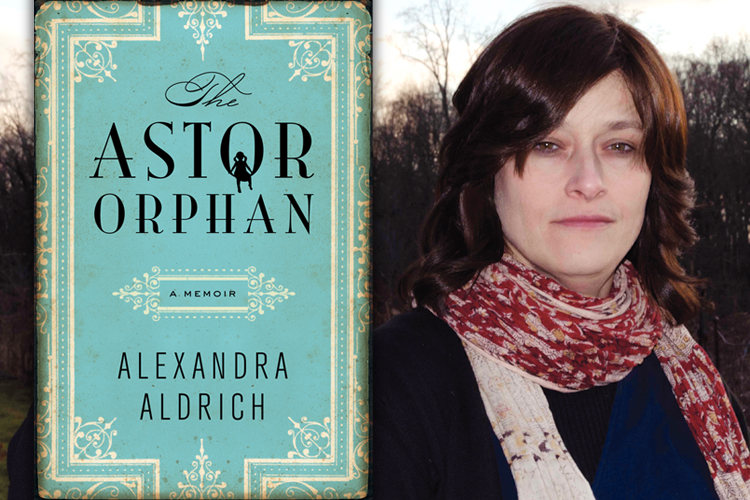 |
| Photo from Salon review |
The Astor Orphan is a memoir written in the same genre as The Glass Castle and Welfare Brat, both of which were considerably better than this one.
Alexandra Aldrich is sympathetic, and although we are roughly the same age, I often found myself wanting to adopt her and give her the sort of nurturing that all children deserve. But as a memoir, The Astor Orphan is too thin for the breadth that she's attempting. The story connects Aldrich's 1980's childhood with her forebears, but few of the characters are fleshed out. Her mother is cold, "icy" as the jacket text describes her, but there must be more to her, since Aldrich claims to want to rescue her from the father that she (Alexandra) seems to mostly adore. The relationship with her grandmother is complex. Although she's at pains to show Grandma Claire as a resource and a figure of relative security in hr life, many of the incidents described that involve Grandma Claire are brutal. With every vignette I wanted to know more about the situation, to get the details of how it worked out, to understand the players more fully, and with every vignette, I was left hanging. While these stories may have been complete in the author's mind, I felt like she didn't communicate that completeness in the story.
This incompleteness totally culminated in Alexandra Aldrich's "escape" to boarding school. How good an escape was it? What did she do with her new liberty? Did she go home for Thanksgiving? What did she discover about herself, or come to understand about her father, by attending his alma mater? How many of the dire stories that he told her about his time there did she experience for herself? Did she ultimately "rescue" her mother and attain the sort of orderly life she had been craving? The reader never finds out, because the story closes abruptly, when she is deposited at the Brooks School for the first time.
Finally, the prose itself: spare; simple sentences; a little repetitious. I liked it in a way, since the spareness of it felt straightforward and refreshing, but it also felt like a mask. I appreciate that the subject was difficult for Aldrich, that perhaps in some ways she is still too close to the material to write it as openly as she may have intended. But if she was ready to write about her unconventional childhood, then I wish she could have written more fully and openly. It's unfortunate, perhaps, that The Glass Castle was so extraordinarily good and written in a generous and evaluative spirit, because every other "deprived childhood" memoir that comes after it almost necessarily suffers by comparison. If Alexandra Aldrich writes a follow-on to The Astor Orphan, I'll read it, because I sincerely want to know how one hangs on to the precious parts of a heritage and discards the corrosive elements of it to emerge as a whole person. But perhaps she isn't ready to write that story.
No comments:
Post a Comment